Hajj And Umrah Package
Labaik Allahuma Labaik – The Sacred Call of the Pilgrimage
At Sky Limit Tours and Travels, we understand the profound significance of the words “Labaik Allahuma Labaik,” which translates to “Here I am, O Allah, here I am.” These words, recited by millions of pilgrims every year, signify a powerful declaration of devotion and surrender to Allah, as individuals embark on the sacred journey of Hajj or Umrah. As a trusted travel agency for your spiritual journey, we offer seamless travel experiences, ensuring that every aspect of your pilgrimage is taken care of, allowing you to focus on your prayers and devotion. Whether you’re planning your first trip to the holy cities of Makkah and Madinah or returning to perform your Umrah or Hajj, Sky Limit Tours and Travels is here to guide you every step of the way. Let us help you answer the call of faith with peace of mind, making your pilgrimage a truly unforgettable experience.
Types of Visas

Hajj And Umrah

Students Visa

Job Visa

Visit Visa

Business Visa

Tourist Visa
Skylimit Tours And Travels
Sky Limit Tours and Travels is your trusted partner for unforgettable pilgrimage experiences. Specializing in Hajj and Umrah packages, we offer seamless travel arrangements, ensuring your journey to the holy cities of Makkah and Madinah is comfortable and spiritually enriching. With our expert guidance and attention to detail, we provide personalized services that allow you to focus on your devotion while we take care of the rest. Let us help you make your sacred journey a memorable one.
Important Information
- Visa Requirements – Guidance on obtaining the necessary pilgrimage visa for Hajj or Umrah.
- Flight Details – Information on flight bookings, schedules, and travel options to Makkah and Madinah.
- Accommodation – Details about comfortable and convenient lodging options near the holy sites.
- Transportation – Information on transportation arrangements for easy travel between cities and holy sites.
- Package Inclusions – Clear breakdown of services included in each pilgrimage package.
- Health and Safety Guidelines – Essential health tips and safety protocols to ensure a smooth journey.
- Local Support – 24/7 assistance and support during your trip from our experienced team.
- Important Dates and Deadlines – Key dates and deadlines for booking, visa applications, and other preparations.
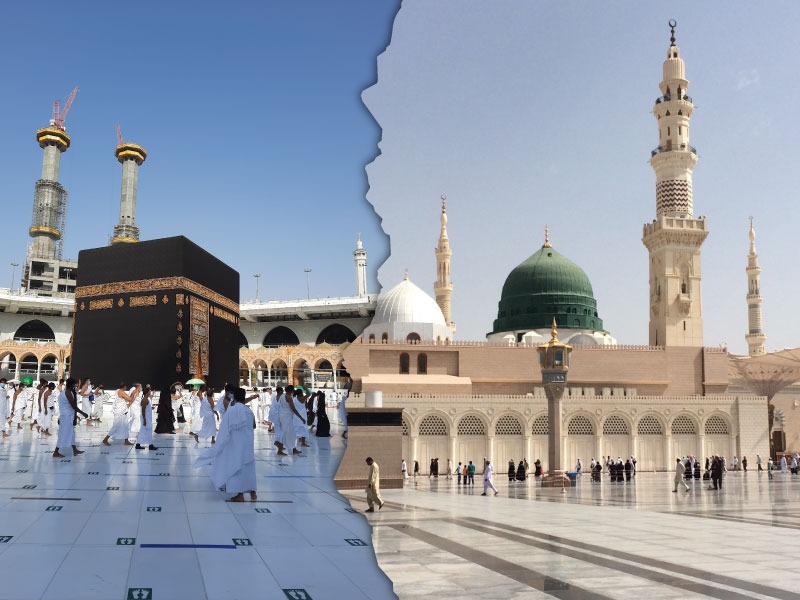
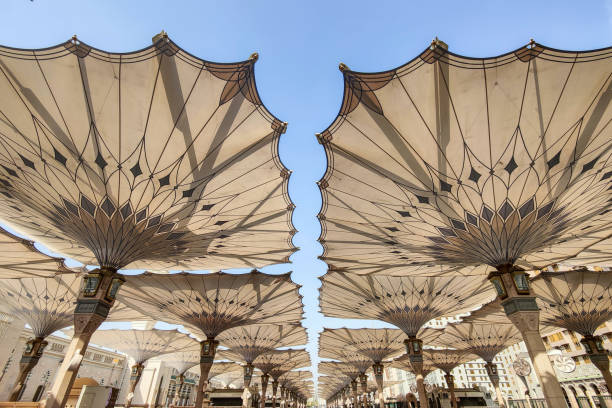
Included in the package
- Flexible Flight Options – Choose from a variety of flight schedules to suit your return journey plans.
- Competitive Pricing – Affordable and transparent pricing for your return tickets.
- Reliable Airlines – Partnered with trusted airlines to ensure comfort and punctuality.
- Seamless Travel Experience – Easy booking process with minimal hassle.
- Assistance with Flight Selection – Personalized guidance in choosing the best flight times for your convenience.
- Timely Returns – Flights that align with your pilgrimage schedule, ensuring you have a smooth return journey.
- 24/7 Customer Support – Dedicated support to assist with any questions or changes to your return trip.
- Hassle-Free Arrangements – We manage all the details of your return travel, allowing you to focus on your spiritual experience.
Not included in the package
Although it can be arranged upon request and for an additional cost, qurbani is not included.
Expenses expended for vaccinations before to performing the Hajj.
transportation to Mina from Muzdalifa.
Wakf-e-Ziarat transportation.
You will be responsible for additional transportation costs, which are also governed by the rules and regulations of the Saudi Arabian Ministry of Haj, if you travel outside of the program and/or group dates, either on your own or in a private cab.
Azizia and Mina do not offer laundry or room service.
excess baggage at the airport beyond the weight limit.
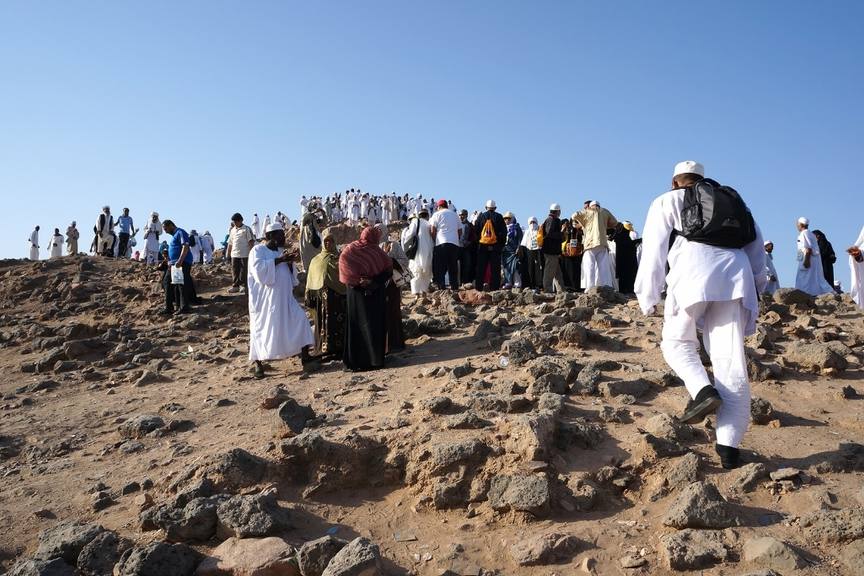
Exclusive Stays in Makkah and Madina: Quad, Double, or Triple Rooms Available – Not in Aziziya
Exclusive Hajj Stays: Makkah & Madina Rooms Only
- Hajj Accommodation: Quad, Double, and Triple Rooms in Makkah & Madina Only
- Hajj Stays: Comfortable Quad, Double, and Triple Rooms in Makkah and Madina (Not in Aziziya)
- Exclusive Hajj Housing: Choose from Quad, Double, or Triple Rooms in Makkah and Madina
- Book Your Hajj Stay: Makkah and Madina Only – Quad, Double, or Triple Room Options
- Hajj Accommodation Special: Premium Rooms in Makkah and Madina (Excluding Aziziya)
Maximize Your Hajj Experience with Our Optimal Package Deals
Comprehensive Services: Enjoy a complete package with accommodations, transportation, and essential services tailored for your comfort and convenience during Hajj.
Cost-Effective: Benefit from affordable rates by bundling your travel, lodging, and services into a single, cost-efficient package.
Exclusive Access: Gain access to exclusive rooms in Makkah and Madina, ensuring proximity to holy sites and a comfortable stay.
Hassle-Free Experience: Let us handle the logistics, so you can focus on your spiritual journey without worrying about the details.
Guided Assistance: Receive expert guidance and support throughout your Hajj journey, ensuring you follow the rites with ease and confidence.
24/7 Support: Our team is available around the clock to provide assistance and answer any questions during your pilgrimage.
Tailored to Your Needs: Choose from quad, double, or triple room options based on your preferences for a personalized experience.
approximately 1.5 billion Muslims worldwide commemorate the festival of sacrifice, Eid-ul-Adha, in conjunction with the annual Hajj, or Holy Pilgrimage, which brings together approximately two million Muslims from various backgrounds to Makkah. Every Muslim who is able to must make the Hajj. It is one of the five pillars of Islam. For the past ten years, we at Skylimit Travels of India have had the honor of offering this life-changing experience to pilgrims performing the Hajj and Umrah. That is, by definition, meant to bring you closer to Allah. We put in endless effort to make your Hajj as simple, opulent, secure, and joyful as we can for every second of it. Every year, we collaborate with our planning team to enhance the package based on our past experiences. We have worked with a diverse spectrum of customers with a diversity of needs, preferences, and backgrounds, and we always try to deliver on our promises and uphold the high standards we have established.
Unveiling the Essence of Hajj
Hajj is a sacred pilgrimage and one of the five pillars of Islam, required for all Muslims who are able. Every year, millions gather in Makkah to perform rituals that strengthen their faith and bring them closer to Allah. This deeply spiritual journey symbolizes devotion, unity, and submission to God.
Who is Required to Undertake the Hajj Pilgrimage?
Hajj is required for every Muslim who is mentally and physically capable, has the financial means, and can undertake the journey without hardship. It is a once-in-a-lifetime obligation for those who meet these conditions
When Does the Hajj Pilgrimage Take Place?
Hajj takes place annually during the Islamic month of Dhu al-Hijjah, the 12th month of the Islamic lunar calendar. The pilgrimage occurs over several days, with the main rituals performed from the 8th to the 12th of Dhu al-Hijjah.
How Many People Participate in Hajj Each Year
Each year, approximately two million Muslims from around the world travel to Makkah to perform the Hajj pilgrimage. The number can vary slightly depending on global circumstances, such as health and travel restrictions.
What Is the Origin of the Hajj Pilgrimage?
The Hajj pilgrimage dates back to the time of Prophet Ibrahim (Abraham), who, according to Islamic tradition, was commanded by Allah to build the Kaaba in Makkah. It is believed that Prophet Ibrahim and his family, including his son Isma’il, laid the foundation for the rituals that would later become Hajj. Over time, the pilgrimage was formalized by the Prophet Muhammad, who performed Hajj during his lifetime and established the rites that are followed today.
What Are the Key Rituals of Hajj?
- Ihram: Pilgrims enter a state of spiritual purity and wear specific white garments.
- Tawaf: Pilgrims circle the Kaaba seven times in a counterclockwise direction.
- Sa’i: Walking seven times between the hills of Safa and Marwah.
- Standing at Arafat: Pilgrims gather at the plain of Arafat for prayer and reflection.
- Muzdalifah: Pilgrims spend the night under the open sky, collecting pebbles for the next ritual.
- Ramy al-Jamarat: Throwing pebbles at three pillars symbolizing the rejection of evil.
- Sacrifice: Pilgrims sacrifice an animal, typically a sheep or goat, as a symbol of Ibrahim’s willingness to sacrifice his son.
- Shaving/Cutting Hair: Male pilgrims shave their heads or trim their hair, while females cut a small portion of their hair
What Sets Umrah Apart from Hajj?
Umrah is a shorter, voluntary pilgrimage that can be performed at any time of the year, while Hajj is a mandatory pilgrimage with specific rituals, performed during the Islamic month of Dhu al-Hijjah. Hajj involves more complex rituals and is a pillar of Islam, while Umrah is optional and simpler in comparison.
The Makkah mosque, as mentioned in Surah Al-e-Imran, is the first house of worship ever built for humanity, serving as a sacred place and a guiding light for all the worlds. It stands as a symbol of unity and spiritual enlightenment for Muslims worldwide.
A recent poll revealed that nearly two-thirds of first-time Hajj pilgrims struggle to perform the rituals correctly due to lack of proper guidance and unfamiliarity with key practices. At Rahat Travels, we recognize the importance of selecting the right package for your spiritual journey. With honesty and professionalism, we ensure our pilgrims receive clear, detailed information and a well-planned experience tailored to their needs. After many successful Umrah trips, we are committed to providing exceptional service that helps you fulfill your pilgrimage with ease and devotion.

Skylimit Travels: Your Trusted Pilgrimage Partner
With years of experience in offering top-notch Umrah travel services, Skylimit Travels has forged strong partnerships with some of the most trusted service providers in Saudi Arabia. This allows us to deliver a reliable, high-quality experience for our pilgrims from start to finish. We carefully select the best hotels, ensuring they are conveniently located near the Haram, and combine them with exceptional amenities to offer an affordable, yet comfortable package. Our goal is to simplify your Umrah journey, enabling you to focus entirely on your worship and spiritual growth.
Packages
Skylimit Travels offers customized Umrah packages with comfortable accommodations near the Haram, seamless travel, and expert guidance, ensuring an affordable and enriching pilgrimage experience.
Discover Everything You Need to Know About Umrah
Umrah is a voluntary pilgrimage that can be performed anytime during the year, involving rituals like Tawaf, Sa’i, and hair trimming. While not obligatory, it holds great spiritual significance. Skylimit Travels offers tailored packages with expert guidance and comfortable accommodations, ensuring a fulfilling experience.
Spiritual Rewards and Significance of Umrah
Umrah holds great spiritual value in Islam, offering numerous benefits for those who undertake it. Performing Umrah is a means of seeking forgiveness, purification, and closeness to Allah. It is a way to expiate sins and renew one’s faith, as it is believed that completing Umrah cleanses the soul. The Prophet Muhammad (PBUH) said that Umrah is an expiation for the sins committed between it and the previous one. Additionally, Umrah fosters unity among Muslims, as pilgrims from diverse backgrounds come together to worship in the sacred cities of Makkah and Madina. Its significance lies in its ability to strengthen spiritual connection, inspire devotion, and reward the pilgrim with immense blessings.
2.How Umrah Removes Poverty: A Spiritual Perspective
The Spiritual and Material Benefits of Performing Hajj and Umrah Together”
Ibn Abbas (RA) narrated a Hadith from Allah’s Messenger (PBUH) stating, “Perform Hajj and Umrah consecutively; for they remove poverty and sin like bellows remove impurity from iron” (Sunan An-Nasa’i, Hadith No. 2631). This highlights the spiritual and material benefits of performing both Hajj and Umrah together, though it is not required to do so frequently—just occasionally, as a means of purifying oneself from sins and financial hardships.
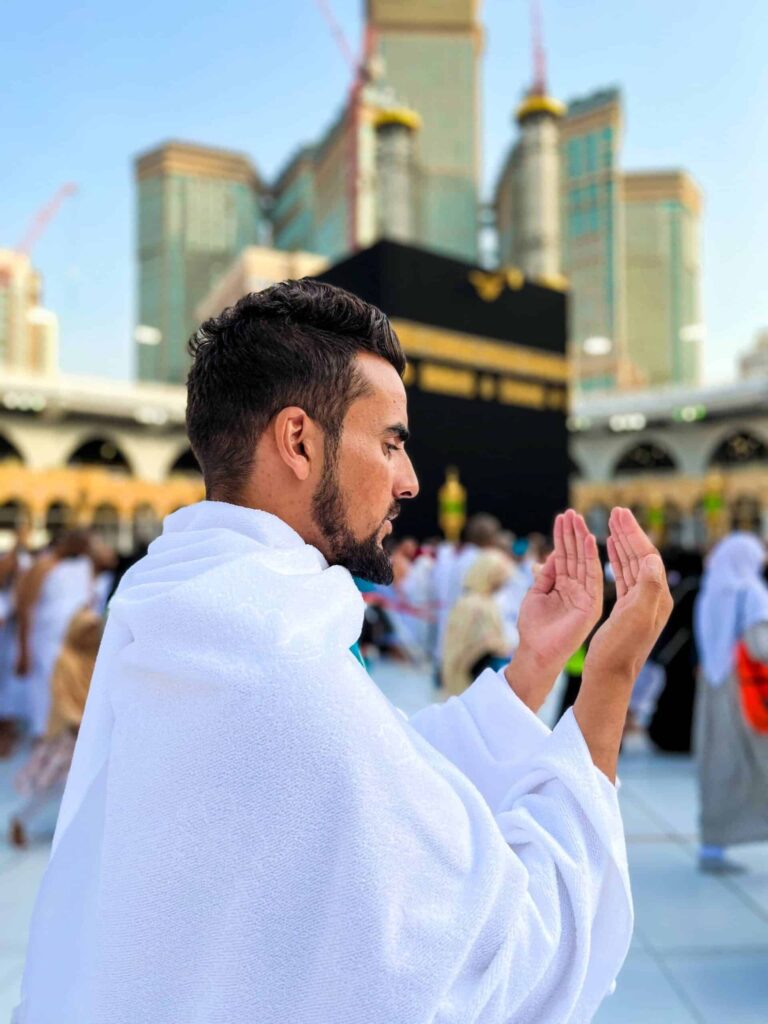
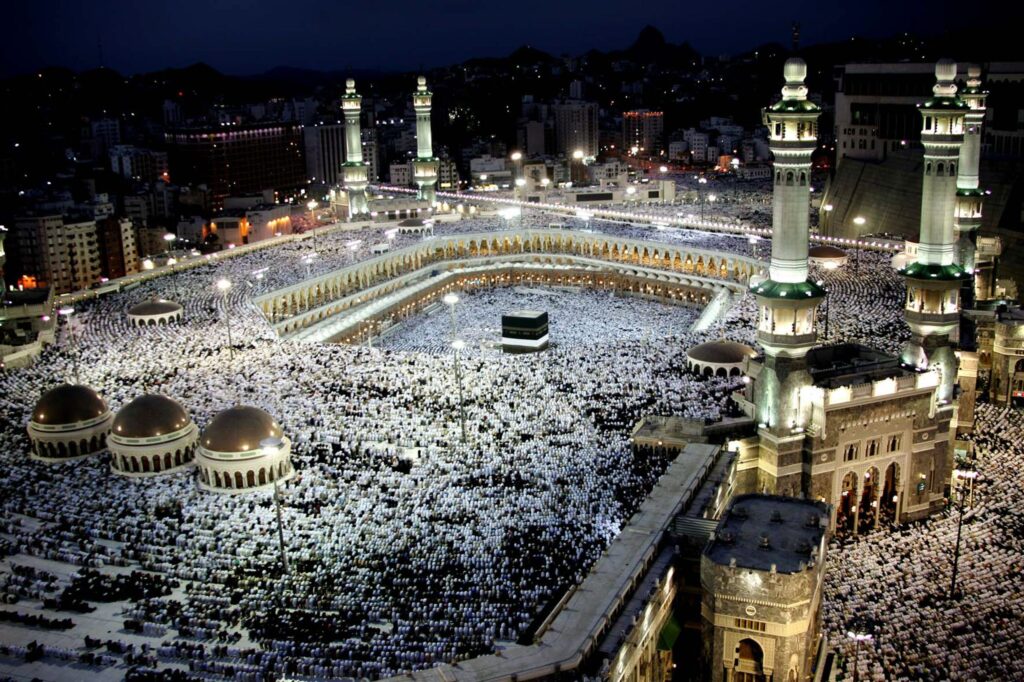
3.Why do some people view Umrah as a form of Jihad in a spiritual sense?
A narration from Allah’s Messenger (PBUH) states, “The Jihad of the elderly, the young, the weak, and the women is Hajj and Umrah” (RA), as found in Sunan An-Nasa’i, Vol. 3, Book of the Rites of Hajj, Hadith No. 2627. This implies that for those unable to physically fight in Jihad, performing Hajj and Umrah can serve as a form of striving in Allah’s cause.
A.4. Is the person performing Umrah considered a guest of Allah, or are they acting as a representative of Allah?
The person performing Umrah is considered a guest of Allah, as they are responding to His invitation and receiving His blessings. The idea of being a representative of Allah is not typically associated with Umrah.
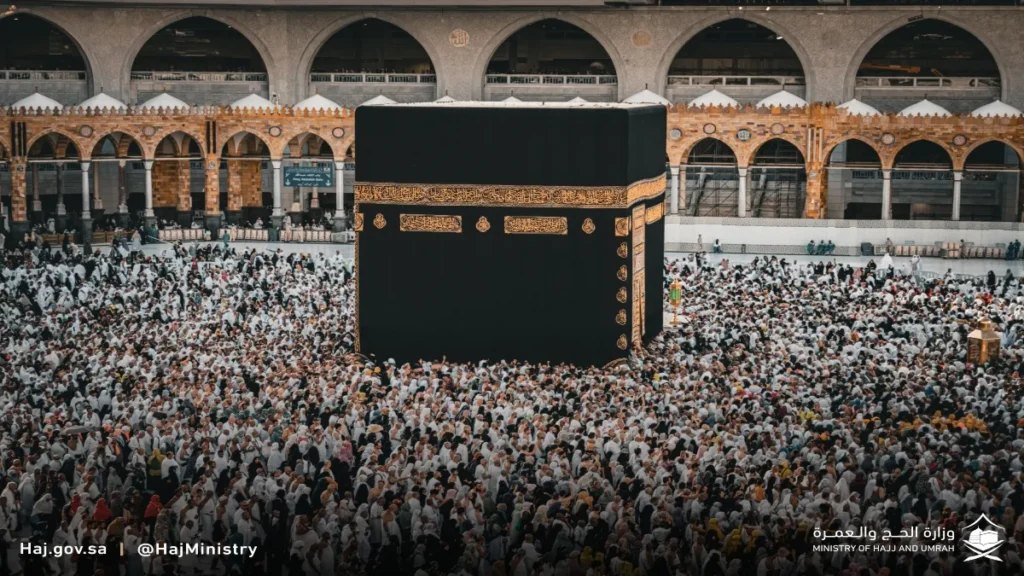
What are the key qualifications required to perform Umrah?
- Financial Capability: The individual must have the means to cover travel, accommodation, and other expenses.
- Physical Ability: The person should be physically fit to handle the journey and its challenges.
- Debt-Free: They should not have outstanding debts and should settle any financial obligations before the trip.
- Halal Wealth: The money used for the journey must come from lawful (Halal) sources.
- For Women: A woman must travel with a Mahram (a male relative whom she cannot marry), such as a husband, father, or brother.
These conditions ensure that only those who are financially, physically, and morally prepared are obligated to perform Umrah.
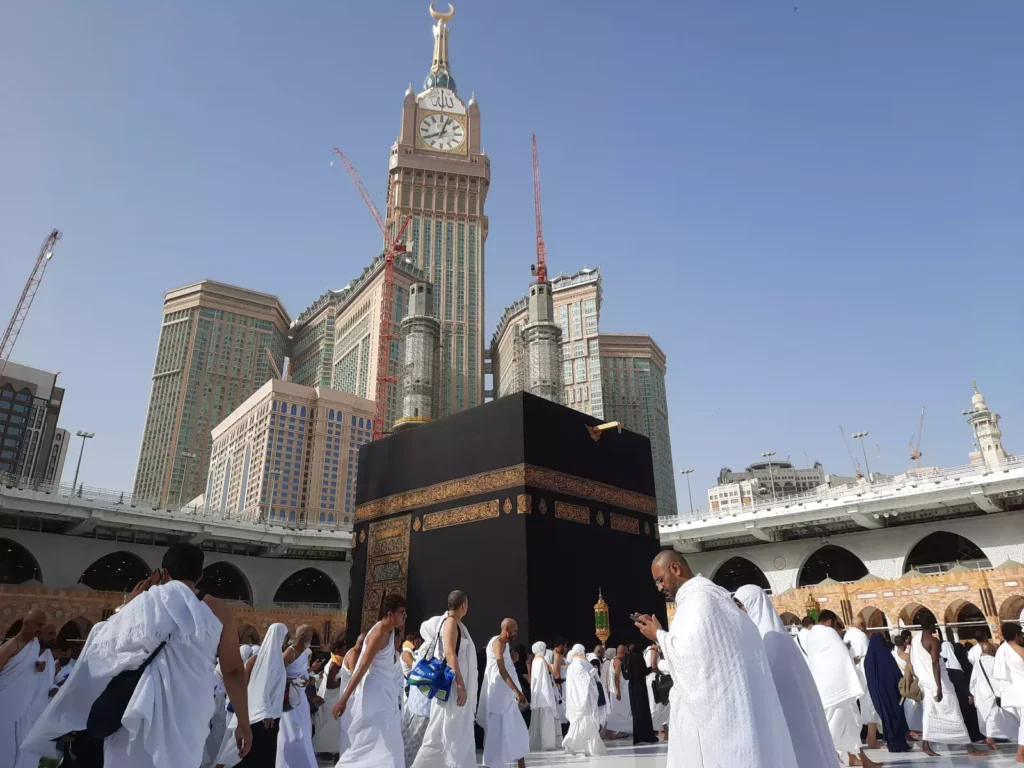
C. When is the best time to perform Umrah?
Umrah can be performed at any time of the year, except during the days of Hajj (from the 8th to the 12th of Dhul-Hijjah). However, it is highly recommended to perform it during the months of Ramadan, as the rewards for Umrah are believed to be greater during this time.
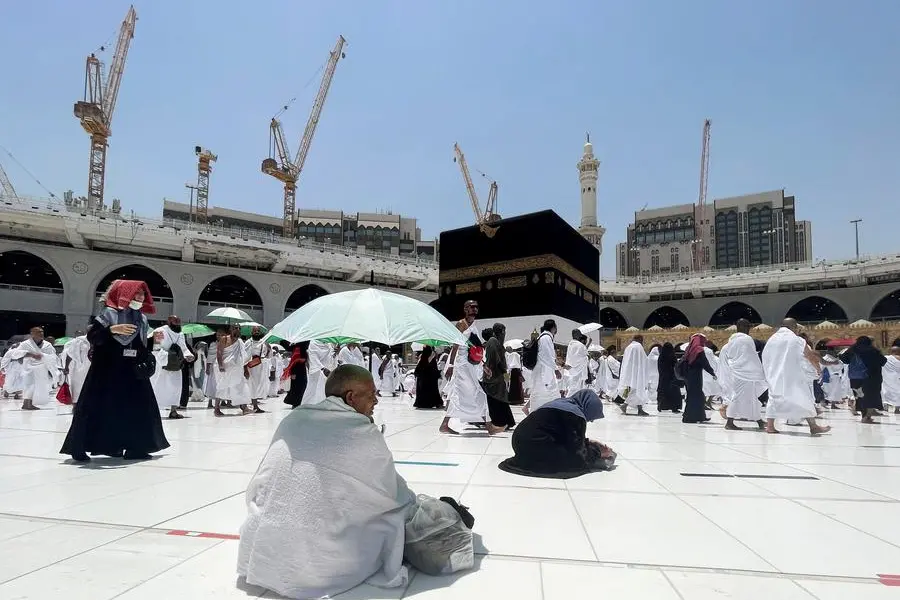
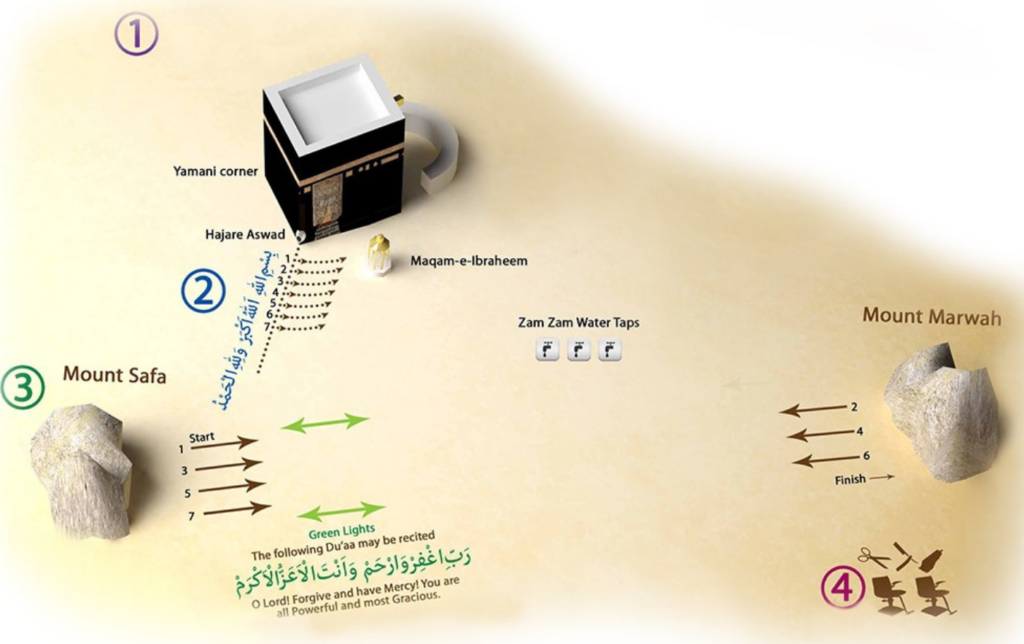
D. How is Umrah performed?
Jabir (RA) said, “The Prophet (PBUH) commanded his companions to complete the ihram and cut their hair short after doing the Umrah and Tawaf (of the Ka’bah, As-Safa, and Al-Marwa).
(Sahih Bukhari, Volume 3, Chapter 11 of the Book of Umrah).
This hadith outlines the processes that must be followed in order to complete Umrah; none of them may be skipped. Based on this narration and other ahadith, all scholars agree that the following is the precise procedure for doing Umrah:
D.1. Entering the state of Ihram (Step 1)
Ihram is the first rite performed during the Umrah. An Umrah is not complete if this is skipped. The intention to conduct the Umrah (and/or Hajj) in a consecrated state is known as Ihram. “Consecration” is designating something or someone as sacred or as someone who is dedicated to a certain purpose. A person who enters the state of Ihram is referred to as a “muhrim.” Once they reach the “Meeqat,” a person who intends to perform the Hajj or Umrah enters the Ihram condition. “Mawaqeet” stands for “Meeqat” in plural form, and these are the Ihram initialization stations. Some places close to Makkah that are reachable by tourists in a variety of ways have been called “Meeqat.” This appointment was made by our beloved Prophet (PBUH). Before traveling outside of these boundaries (the “Mawaqeet”), anyone intending to perform the Umrah (or Hajj) must wear Ihram; if one does so willfully, they must return to the “Meeqat” to obtain Ihram; if not, they must perform a Fidyah, which is the killing of a sheep in Makkah (to be distributed to the needy).
The traveler now gives their Niyyah in order to perform Umrah; Labbaik is the Niyyah for Umrah.
The pilgrims may then start reciting “Talbiyah,” which signifies that they have entered the Ihram state. The term “Talbiyah” is mentioned in the story that follows:
“Labbaik Allahumma labbaik; Labbaik la sharika laka labbaik; Innal-hamda wan-ni’mata laka wal-mulk, la sharika laka,” the Prophet (PBUH) would say, according to Ibn Umar (RA).
Hadith No. 825, Jami’ At-Tirmidhi, Vol. 2, Hajj Chapters. Ihram, “Mawaqeet,” and “Talbiyah” are associated with numerous rules, directives, and dos and don’ts. For all the details, please refer to our previous essay, “Ihram,” which is available at www.quranandhadith.com and goes into great length on these choices.
D.2. Tawaf (Step 2)
The pilgrim proceeds to “Masjid Al-Haram” in Makkah to complete the remaining Umrah ceremonies after meeting the requirements of donning Ihram and reciting the Niyyah. First is the Tawaf of the Ka’bah. The Ka’bah is circled seven times counterclockwise in a process known as tawaf, which is done with the Ka’bah facing left. The round starts and ends at the “Black Stone” corner. After making seven rounds of the house, one should do two raka’at prayers near “Maqam-e-Ibrahim,” the name of the stone (or spot) where Ibrahim (AS) is said to have stood during the building of the Ka’bah. While it is customary to pray near “Maqam-e-Ibrahim” for Tawaf, if congestion or other reasons prevent one from doing so, they are free to worship elsewhere in the sacred mosque.
D.3. Sa’ee (Step 3)
Once Tawaf is completed, the pilgrim does Sa’ee, the next Umrah ceremony. Sa’ee is the term for traveling back and forth between the As-Safa and Al-Marwa mountains, which are located close to the Ka’bah.
D.4. Cutting the hair (Step 4)
Following the completion of the Sa’ee, the pilgrim cuts their hair. The Umrah-related hair-cutting rite is governed by certain laws.
D.4.1: A male tourist has the option of shaving or cutting his hair. This is illustrated by the story that follows:
According to a tale related by Nafi, Abdullah allegedly said, “Allah’s Messenger (PBUH) shaved his head, as did a number of his companions, and some of them cut their hair.” According to Abdullah, “May Allah have mercy on those who cut their hair and those who shaved their heads once or twice.” The Messenger of Allah said this (PBUH).
Hadith No. 3144 (1301), Book of Hajj, Sahih Muslim, Vol. 3.
However, the story linked below provides further information that should be included to this conclusion.
Yahya bin Al-Hussain’s grandmother recounted seeing the Prophet (PBUH) offer prayers for those who had shaved their heads three times and for those who had cropped their hair once on the Farewell Pilgrimage.
As stated in Hadith No. 3150 (1303), Sahih Muslim, Volume 3, Hajj Book.
As a result, shaving the head is increasingly preferred and suggested for male pilgrims. After shaving his own head, the Prophet (PBUH) prayed more for those who had also gone bald. This suggests that shaving was the Prophet’s (PBUH) preferred method of hair cutting.
D.4.2: A female pilgrim is not permitted to shave her head; instead, she should just clip her hair. This is illustrated by the story that follows:
Ibn Abbas (RA) reported that Umm Uthman bint Abi Sufyan testified that Allah’s Messenger (PBUH) said that women should only cut their hair, not shave.
(Sunan Abu Dawud, Book of the Rites of Umrah and Hajj, Vol. 2, Ahadith Nos. 1984 and 1985).
Consequently, a woman cuts a finger-width piece of hair from her head.
With the completion of the Umrah ceremonies, the pilgrim can now don their Ihram. Following this, all of Ihram’s prohibitions are lifted. Concluding remarks Salutations, brothers and sisters. Umrah should only be done for Allah’s honor; it should not be done to attract attention from the public, to achieve material wealth, or to garner respect from others. It is obligatory for all Muslims (with the means to do so), thus one shouldn’t avoid it. I want to emphasize one more thing in this context. There are pilgrims who try to do as many Umrahs as possible on their one trip to Makkah. It is crucial to remember that completing the rituals by themselves does not signify the conclusion of Umrah; rather, it is the pilgrim’s full trip, conquering all obstacles along the way and offering the Ibadah in accordance with Allah’s will. Therefore, it is normally better to perform one Umrah at a time, or in a single trip, rather than performing many Umrahs on a single visit to Makkah. Then, the next time, one should embark on another journey to perform another Umrah. This will therefore give the pilgrim a true understanding of what it means to journey to Allah’s abode. This will provide a fresh and genuine viewpoint for his or her Ibadah during the pilgrimage.
Here are some more guidelines for Muslims who have performed many Umrahs and are still permitted to visit Allah's House:
In order to guarantee that every Muslim worldwide has an equal opportunity to gain from Umrah, these people could decide on a different strategy. Because they lack the resources to do so, many impoverished individuals pass away with the hope and desire to conduct Umrah (and/or Hajj) buried deep inside them. Rich people who have been blessed by Allah should feel obligated to sponsor these underprivileged people so they can perform Umrah (and/or Hajj); they should provide them with the money, the knowledge, and all other resources that they will need to perform Umrah (and/or Hajj). Almighty Allah will bestow upon them an honor, subhanallah.
Allah is the most knowledgeable.
May Allah forgive me if I am wrong and guide us in the right direction. Ameen.
Contact
- Mohammed iqbal:
+91 9160584763 - Mohammed Azhar:
+91 6305444694 Mon-Sat : 11:30 AM – 09:00 PM Sun : Closed
